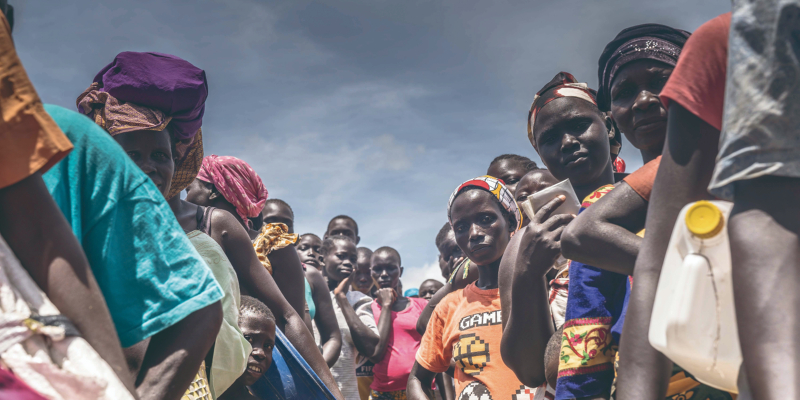Urged by the great famine and the massive exodus to neighboring countries, the government and opposition groups in South Sudan have met in Addis Ababa (Ethiopia) with the Intergovernmental Authority (IGAD) to bring positions closer, but little progress has been made.
Text - Edward Diez-Caballero, Nairobi
UNICEF's figures from a year ago are outdated. Nearly 1.8 million people, including more than a million children, have had to flee their homes in South Sudan for neighboring countries such as Ethiopia, Kenya and Uganda because of the civil war that began in 2013.
In addition, another 1.4 million children live in IDP camps inside the country. "The future of a generation is really at stake," Leila Pakkala of the United Nations Children's Fund said last year. "The horrific reality that nearly one in five children in South Sudan have had to flee their homes illustrates how this conflict is devastating for the weakest in the country," she added.
A couple of weeks ago, the UN Secretary for Humanitarian Affairs, Mark Lowcock, stated that the conflict (civil war) in South Sudan has caused the displacement of some 4.3 million people, almost a third of the country's population, while seven million are in need of urgent humanitarian assistance.
Lowcock called on the warring parties to immediately cease hostilities, speaking to reporters in the capital, Juba, at the end of a two-day visit to South Sudan. The UN representative stressed that "the conflict in South Sudan has entered its fifth year, the population continues to suffer in unimaginable ways and so far the peace process has not borne fruit." "The economy has collapsed and the fighters are pursuing a scorched earth policy, with killings and rapes in violation of international law," he added.









